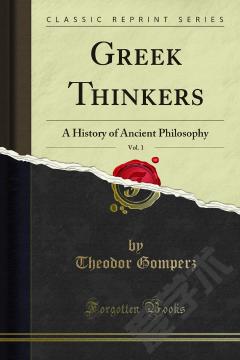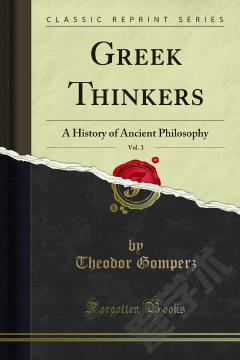The Discovery of the Mind —— The Greek Origins of European Thought
----- 心灵的发现
At this point we encounter two terminological difficulties. The first arises from a philosophical problem: in spite of our statement that the Greeks discovered the intellect we also assert that the discovery was necessary for the intellect to come into existence. Or, to put it grammatically: the intellect is not only an affective, but also an effective object. It must be obvious to anyone that we are here using a meta phor; but the metaphor is unavoidable, and is in fact the proper expression of what we have in mind. We cannot speak about the mind or the intellect at all without falling back on metaphor. All other expressions, therefore, which we might to outline the situation, present the same difficulty say that man understands himself or recognizes himself, we do not mean the same thing as is meant by understanding an object, or recognizing another man. For, in our use of the terms, the self does not come into being except through our comprehension of it.1 If, on the other hand, we say that the intellect reveals itself, we regard this event not as a result of man's own doing but as a metaphysical happening. This again differs in meaning from the statement: 'a man reveals himself', i.e. He drops his disguise; for the man is the same after the change as before it, while the intellect exists only from the moment of its revelation onward, after it makes its appearance through an individual. If we take the word 'revelation' in its religious significance the same is true once more: the epiphany of a god presupposes that he exists, and that his existence is by no means dependent upon the revelation. The intellect, however, comes into the world.
{{comment.content}}








 京公网安备 11010802027623号
京公网安备 11010802027623号